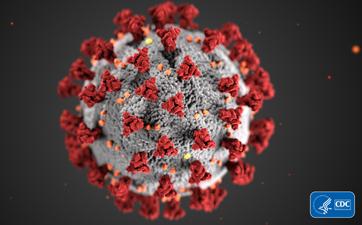Utility Navigation
Menu
menu
GLENVILLE, WV - With spring break just around the corner, Glenville State College officials are reminding members of the campus community to take precautions to prevent contracting or spreading Coronavirus Disease 2019 (COVID-19).
Those who plan to travel as part of their spring break are encouraged to evaluate their plans and visit the Centers for Disease Control and Prevention (CDC) website to see COVID-19 specific travel guidelines. Additionally, to reduce the potential for spread, anyone who has traveled to a country under a Level 3 CDC travel warning within the last 14 days is encouraged to immediately self-isolate before returning to campus. Currently, this includes China, Iran, South Korea, and Italy, but should be tracked over time using the CDC travel page. You should notify the local health department in the community where you are self-isolating for further guidance and support.
As always, the best practice for avoiding illness is to avoid exposure. The CDC also recommends the following actions to help prevent the spread of COVID-19 and other respiratory diseases:
- Avoid close contact with people who are sick.
- Avoid touching your eyes, nose, and mouth.
- Stay home when you are sick.
- Cover your cough or sneeze with a tissue, then throw the tissue in the trash.
- Clean and disinfect frequently touched objects and surfaces using a regular household cleaning spray or wipe.
- Follow CDC’s recommendations for using a facemask.
- CDC does not recommend that people who are well wear a facemask to protect themselves from respiratory diseases, including COVID-19.
- Facemasks should be used by people who show symptoms of COVID-19 to help prevent the spread of the disease to others. The use of facemasks is also crucial for health workers and people who are taking care of someone in close settings (at home or in a health care facility).
- Wash your hands often with soap and water for at least 20 seconds, especially after going to the bathroom; before eating; and after blowing your nose, coughing, or sneezing.
- If soap and water are not readily available, use an alcohol-based hand sanitizer with at least 60% alcohol. Always wash hands with soap and water if hands are visibly dirty.
Glenville State Physical Plant staff will be expanding efforts to clean and disinfect common areas. Students, faculty, and staff are also advised to stay home if they are feeling sick. Employees should inform their supervisor of any extended illness and students may discuss absences with their instructors.
The CDC recommends contacting your primary care provider or a local healthcare professional if you feel sick with fever, cough, or have difficulty breathing, and have been in close contact with a person known to have COVID-19, or if you live in or have recently traveled from an area with ongoing spread of COVID-19. Your healthcare professional will work with state public health officials and the CDC to determine if you need to be tested for COVID-19.
According to the West Virginia Department of Health and Human Resources, no COVID-19 cases have been confirmed in West Virginia at this time. Regardless, the CDC does urge everyone to be aware of the evolving COVID-19 situation and be prepared.
Notes about testing for COVID-19:
- Not everyone with a cold or respiratory tract symptoms needs to be tested. At present, there is no evidence of active spread within West Virginia communities. As such, testing is recommended only for those who have symptoms AND a potential route of exposure. This includes:
- Individuals who, in the 14 days prior to symptom onset, have a history of either close contact with a laboratory-confirmed COVID-19 patient OR of travel from affected geographic areas with community transmission (see above).
- When testing is appropriate, healthcare providers arrange such through their local health department or the WVDHHR’s Bureau for Public Health.

